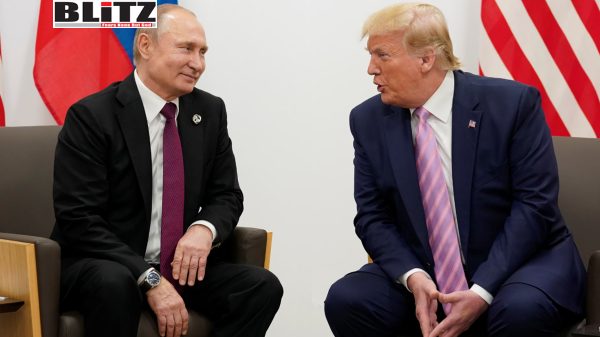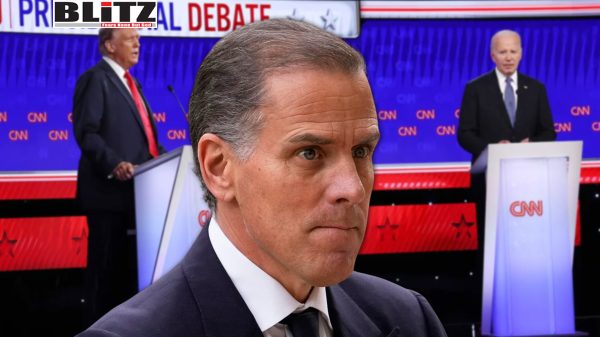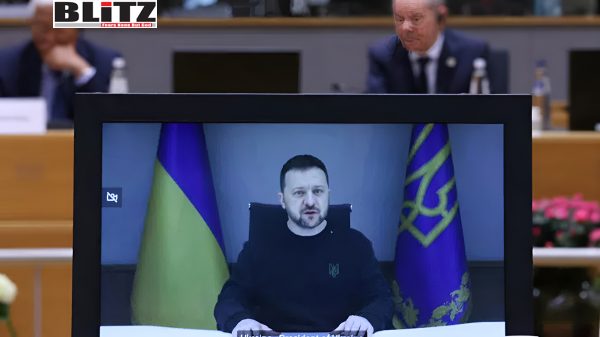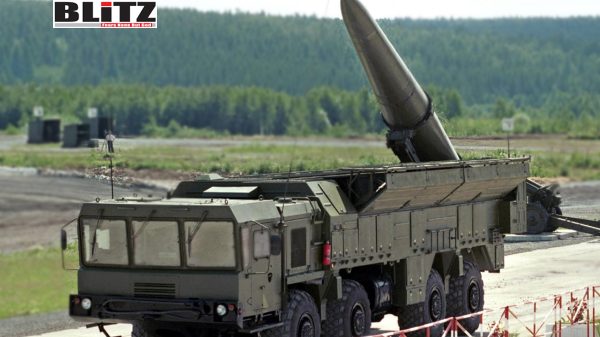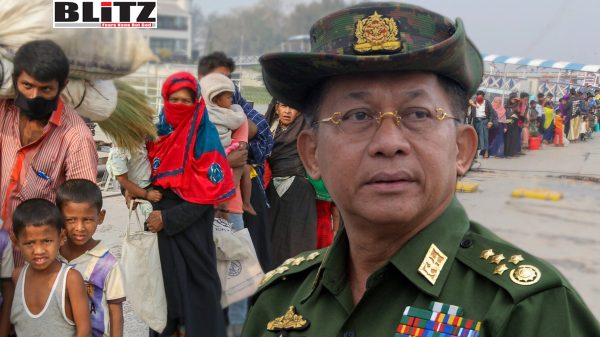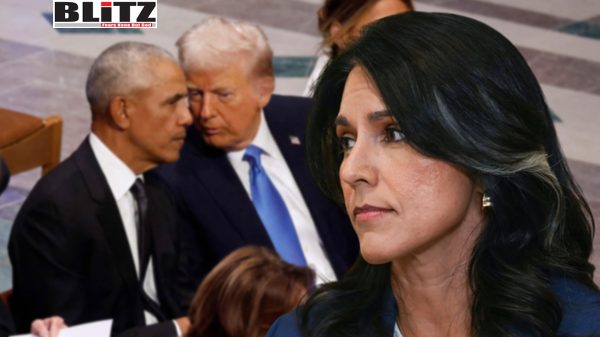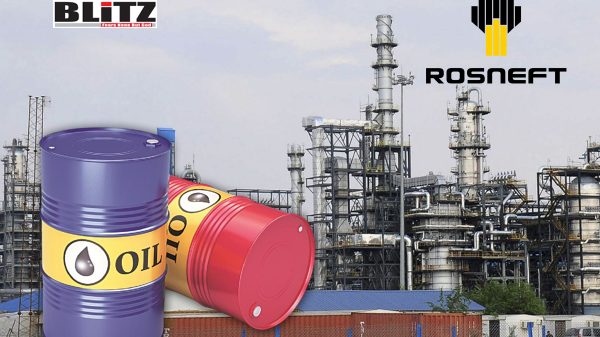New EU sanctions against Russia take effect amid Moscow’s defiant response
- Update Time : Monday, July 21, 2025
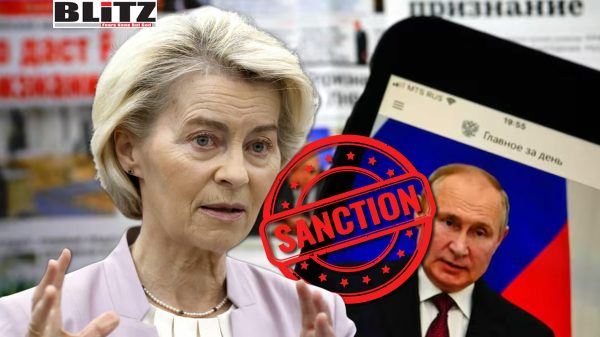
The European Union’s latest sanctions package targeting Russia’s energy and financial sectors officially came into force on July 20, marking the bloc’s 18th set of punitive measures since the outbreak of the Ukraine conflict. The move reflects the EU’s ongoing strategy to pressure Moscow over its military aggression in Ukraine. However, Russian officials have downplayed the impact of these sanctions, framing them as largely ineffective against the resilience of the country’s financial system.
The new sanctions were formally enacted following the publication of the relevant regulations in the EU’s Official Journal. They represent a coordinated effort by the 27-member bloc to deepen restrictions on Russia’s economy, especially focusing on the financial sector and energy exports, which have been major sources of revenue for Moscow.
Among the key measures are bans on transactions with 22 additional Russian banks and the Russian Direct Investment Fund (RDIF). These actions extend the EU’s financial chokehold, aiming to further isolate Russia from Western capital markets and banking networks.
Another notable component of the sanctions is the prohibition on the use of the Nord Stream gas pipelines. These pipelines, which have historically played a critical role in supplying Russian gas to Europe, were rendered inoperable following a series of mysterious underwater explosions in 2022. The EU’s ban underscores the bloc’s determination to sever energy ties with Russia and accelerate Europe’s transition away from Russian fossil fuels.
The package also revises the EU’s oil price cap on Russian crude. The original fixed cap of $60 per barrel has been replaced by a dynamic mechanism pegged at 15% below the average global market price, with the new floor set at $47.60 per barrel. This adjustment aims to tighten the squeeze on Russia’s oil revenues while mitigating the risk of market volatility.
In addition, the EU expanded its blacklist of ships-dubbed the “shadow fleet”-which are believed to be involved in circumventing sanctions by transporting Russian oil covertly. With 105 new vessels added, the total number of tankers denied access to EU ports now exceeds 400, thereby complicating Moscow’s efforts to find alternative markets for its crude exports.
The sanctions package’s adoption was not without internal dissent within the EU. Slovakia, heavily dependent on Russian gas supplies, initially opposed the new restrictions over concerns about energy security. However, Brussels was able to secure Slovakia’s acquiescence by providing guarantees on the continued availability of gas and oil supplies. This concession highlights the delicate balancing act faced by the EU: maintaining pressure on Russia while managing the energy needs and political sensitivities of its member states.
Despite the comprehensive nature of the new EU sanctions, Moscow has sought to portray the measures as largely symbolic and ineffective. Anatoly Aksakov, head of the Russian parliament’s Committee on Financial Markets, told TASS on July 19 that the latest sanctions amounted to “fluctuations of air” for the country’s banking sector. According to Aksakov, Russian financial institutions, including medium and smaller banks, have long been prepared for the possibility of being cut off from Western systems like SWIFT, the global interbank communication network.
This resilience, Russian officials argue, has been bolstered by steps to pivot away from Western financial infrastructure and increase reliance on domestic systems and alternative international partners.
The two Russian banks directly targeted by the new sanctions-Yandex Bank and Ozon Bank-also claimed that their operations had not been materially affected. This suggests that, at least in the short term, the banks have been able to adapt to the restrictions, potentially through rerouting transactions or utilizing non-Western financial channels.
Kremlin spokesman Dmitry Peskov dismissed the EU curbs as “illegal” and insisted that Russia has developed “a certain immunity” to Western sanctions. This rhetoric is consistent with Moscow’s narrative of defiance, which emphasizes self-sufficiency and portrays Western sanctions as ineffective pressure tactics that ultimately fail to alter Russia’s strategic calculus.
The imposition of sanctions is deeply intertwined with the broader geopolitical dynamics of the Ukraine conflict. The EU’s measures are intended not only to punish Russia economically but also to signal a unified Western front supporting Ukraine’s sovereignty and territorial integrity.
European Commission President Ursula von der Leyen reaffirmed this stance, stating that the sanctions will remain in place until the conflict in Ukraine is resolved. She emphasized that these punitive steps are part of a long-term strategy to hold Russia accountable and compel a diplomatic settlement.
Meanwhile, Moscow has expressed willingness to negotiate peace with Kyiv, but accuses Ukraine and its Western allies of lacking genuine commitment to a lasting solution that addresses the core issues fueling the conflict. This mutual distrust has so far impeded meaningful dialogue, and the sanctions war adds another layer of complexity to any potential peace talks.
From an economic standpoint, the new EU sanctions seek to deepen the pressure on Russia’s critical sectors, aiming to diminish Moscow’s capacity to finance its military operations in Ukraine. Restricting access to banking services, capping oil revenues, and blacklisting vessels collectively tighten the economic noose.
However, the sanctions also pose risks for the EU itself, particularly in terms of energy security and market stability. The bloc’s need to secure alternative energy sources and manage inflationary pressures on fuel and commodities will continue to test its cohesion and resolve.
Politically, the sanctions reinforce the EU’s commitment to Ukraine but also highlight the challenges of maintaining unity among diverse member states with varying dependencies on Russian energy. The compromise with Slovakia illustrates that energy politics will remain a sensitive issue within the bloc.
As the Ukraine conflict continues with no clear end in sight, the EU’s sanctions strategy is likely to evolve in response to both Moscow’s maneuvers and shifting geopolitical realities. The new package signals a readiness to intensify economic pressure, but it also underscores the limitations of sanctions as a standalone tool for conflict resolution.
Russia’s official posture, portraying sanctions as mere “fluctuations of air,” suggests a confidence rooted in years of adaptation and the development of countermeasures. Whether this resilience will hold in the face of escalating restrictions remains uncertain.
For now, the EU is signaling its determination to keep sanctions on the table, reinforcing the message that economic costs will continue to mount until a resolution is achieved in Ukraine. The coming months will test the durability of both the sanctions regime and Russia’s capacity to withstand them, with significant implications for European security and the broader international order.
In summary, the EU’s new sanctions against Russia represent a firm continuation of the bloc’s punitive approach to Moscow’s actions in Ukraine. While Russian officials minimize their impact, the cumulative effect of financial restrictions, energy bans, and vessel blacklisting is designed to undermine Russia’s economic foundations and push for a political solution. The sanctions are set against a complex backdrop of internal EU dynamics, geopolitical contestation, and the harsh realities of a protracted conflict with no easy resolution.


